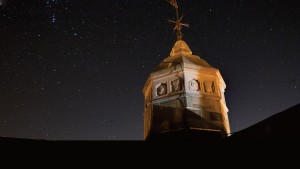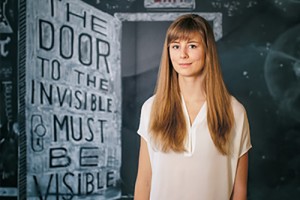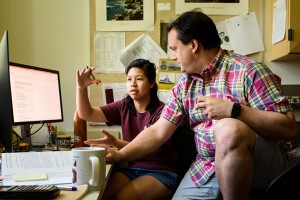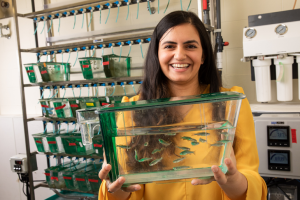Ryn Grutkoski ’21 is passionate about searching for answers to unknown questions.
“What drove me to physics in the first place was finding out just how much we really didn’t know, how many questions there still were,” said the physics major from Moose Lake, Minnesota. “We have this really solid theory of general relativity and gravity, and also have quantum mechanics, and they’re not compatible fully with each other. How can we have these two things that seem to work so well in their respective areas, but we can’t quite force them together?”
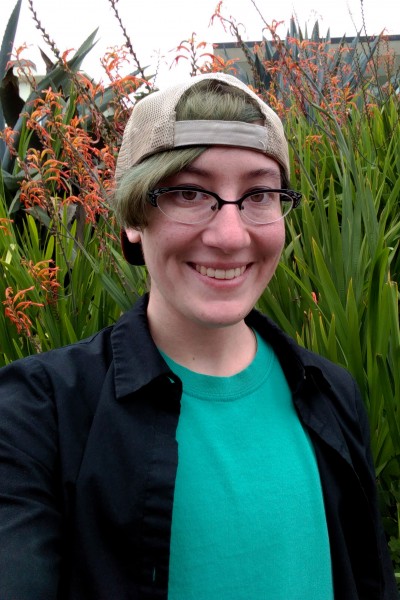 As a winner of a coveted National Science Foundation (NSF) Graduate Research Fellowship Program (GRFP) grant, Grutkoski will have plenty of time and resources to continue exploring these questions after graduating from Kenyon this year. The GRFP grants are awarded based on an applicant’s potential for significant achievements in future academic and professional careers, providing a three-year annual stipend of $34,000 and a $12,000 cost-of-education allowance to recipients’ graduate institutions.
As a winner of a coveted National Science Foundation (NSF) Graduate Research Fellowship Program (GRFP) grant, Grutkoski will have plenty of time and resources to continue exploring these questions after graduating from Kenyon this year. The GRFP grants are awarded based on an applicant’s potential for significant achievements in future academic and professional careers, providing a three-year annual stipend of $34,000 and a $12,000 cost-of-education allowance to recipients’ graduate institutions.
Applicants must submit a personal statement as well as plans for future research and experiments, and while about 2,000 fellowships are awarded each year, most go to graduate students. Only a handful are won by undergraduates. (In addition to Grutkoski, Jeremy Moore ’19 won a GRFP award this year; Austin Hulse ’19 and Elisabeth Bradford ’21 received honorable mentions, another strong indicator of future success.)
Grutkoski’s research is in the field of cosmology, a branch of astronomy concerned with the origins and development of the universe, starting with the Big Bang. They were introduced to the field by Associate Professor of Physics Tom Giblin, an expert in theoretical and numerical high-energy physics who employs high-performance computing to study the physics of the early universe.
Winning an NSF grant helps students like Grutkoski realize “how important the work is that they’ve done and how important science is here at Kenyon,” Giblin said. “This isn’t a trial run, this is real honest-to-goodness cutting-edge research.”
“When you’re doing research at Kenyon, you’re doing actual research, you’re doing the important stuff,” said Grutkoski, who started working in Giblin’s lab as a first-year student. “Even from the very beginning, I had agency, I was designing a lot of my own project, I was able to make it something I was interested in.”
“Ryn has worked every opportunity, applied for every fellowship, every grant, everything to try to get this work going, has put in the hours,” Giblin said. “Ryn has taken advantage of the extraordinary opportunities we have here and has really excelled with them.” Last year, Grutkoski also won a Goldwater Scholarship, considered the premier award for undergraduate research in mathematics, engineering and the natural sciences.
Following Commencement in May, Grutkoski will continue their research at the University of Chicago’s Department of Astronomy and Astrophysics, finding ways to translate theoretical and existential questions about the universe into answers for everyday people. “Every time we have found new physics, it has always had really important ramifications and important discoveries that have impacted people’s daily lives,” Grutkoski said.
Further down the road, Grutkoski hopes to close the circle and impart their knowledge and expertise to the next generation of physicists. “I would love to work at a smaller college where I can do research but also actually have that contact with students and give that same mentorship that I’ve had here,” they said. “I think that’s really important.”
